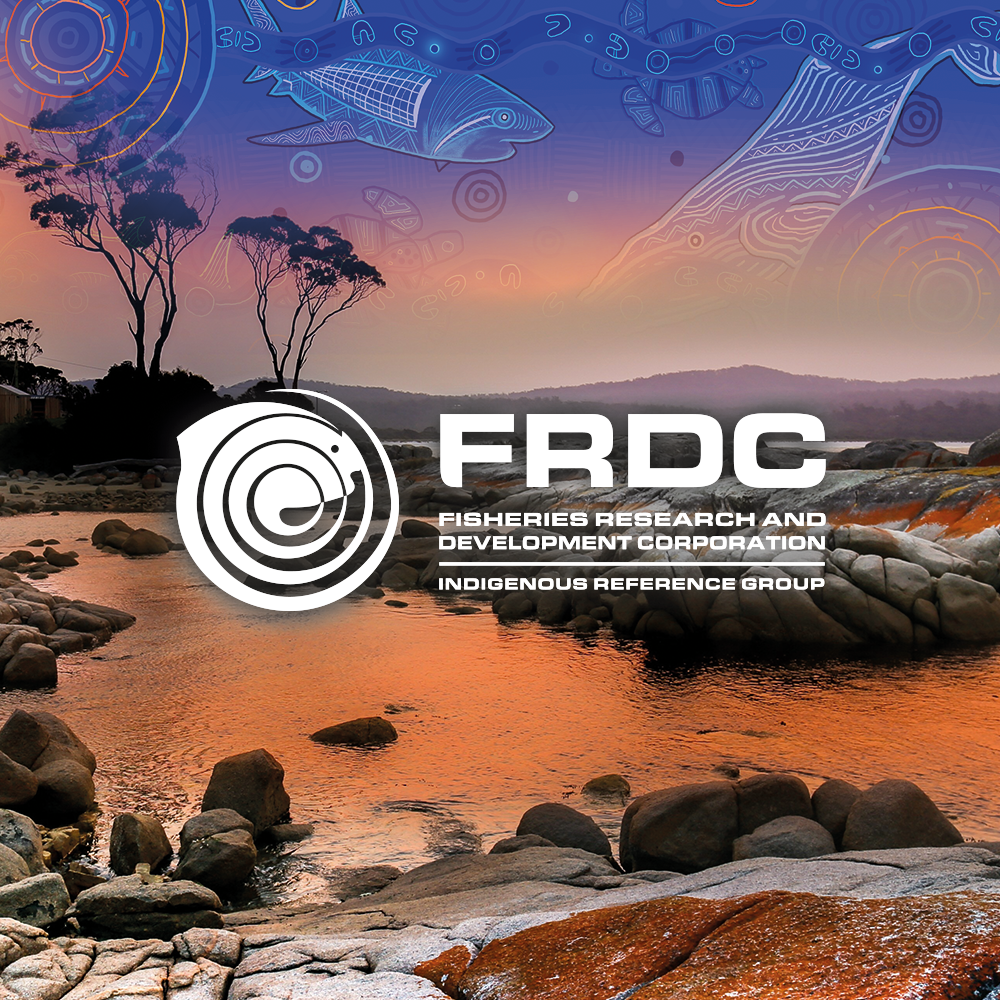From helping to develop a Kimberley Aboriginal Mud Crab Fishery, to Two-Eyed Seeing – a framework for cultural fishery assessments, FRDC is dedicated to investing in research, development and extension (RD&E) to advance the aspirations of Aboriginal and Torres Strait Islander peoples.
In the last five years FRDC has invested in more than 30 projects for the benefit of Indigenous fishing and aquaculture. This investment would not be possible without the advice and direction of our Indigenous Reference Group (IRG).
The IRG plays a pivotal role, ensuring First Nations perspectives are integral to FRDC’s RD&E agenda, through the provision of strategic advice, advocacy and guidance on Indigenous fisheries, aquaculture and sea country management issues. This ensures the alignment with the aspirations, values, and knowledge systems of Aboriginal and Torres Strait Islander communities.
FRDC is delighted to announce the appointment of new Reference Group members:
- Ashley Perez
- Bryan Denny
- Dr Cass Hunter
- Craig Aspinall
- Delahay Miller
- Dennis Ah-Kee
- Frank Procter
- Shane Holland
- Stephan Schnierer
This group is currently being led by Executive Officer of the Indigenous Reference Group, Stan Lui.

The new cohort brings together a diverse group of Indigenous leaders, traditional owners and professionals who are deeply connected to their Sea Country and have a wealth of experience in fisheries management, policy development, and cultural practices. These appointments underpin FRDC’s commitment to embedding Indigenous knowledge and perspectives in all aspects of fisheries research, development and extension.
FRDC Managing Director, Dr Patrick Hone, congratulated the new members and recognised the importance of Aboriginal and Torres Strait Islander engagement in fisheries and aquaculture.
“The expertise and cultural knowledge the IRG brings is invaluable to ensuring that Indigenous communities have a meaningful role in shaping the future of Australia’s fisheries,” Dr Hone said. “We are excited to work with the new IRG members to build stronger partnerships and create opportunities through RD&E for Australia’s First Nations and enable their passion for innovation”.
The IRG will work collaboratively with FRDC stakeholders, including industry, government agencies and research institutions, to ensure Indigenous knowledge systems are respected and integrated into all aspects of fishing and aquaculture RD&E.
For more information on the FRDC Indigenous Reference Group and their work, visit frdc.com.au/IRG





